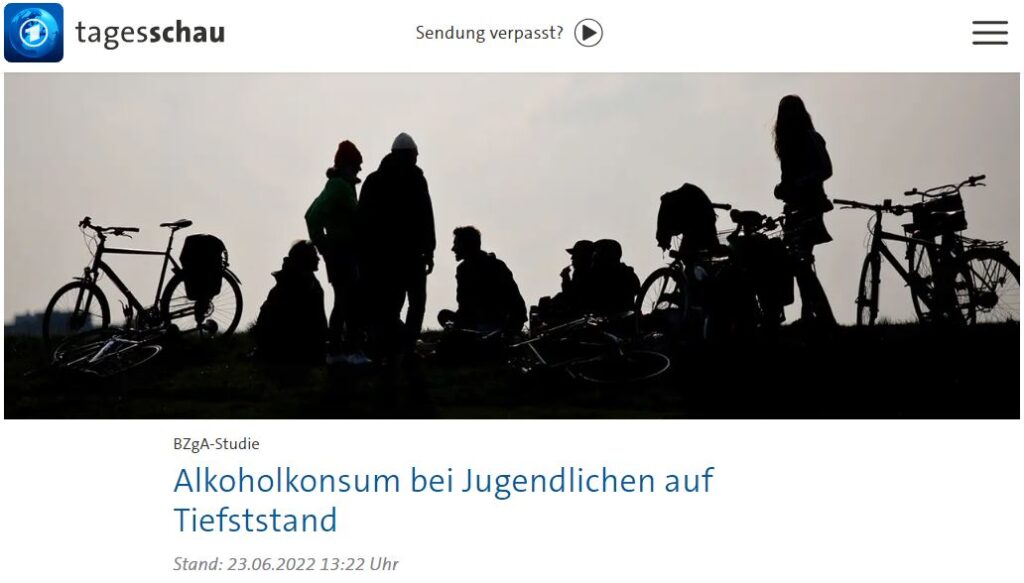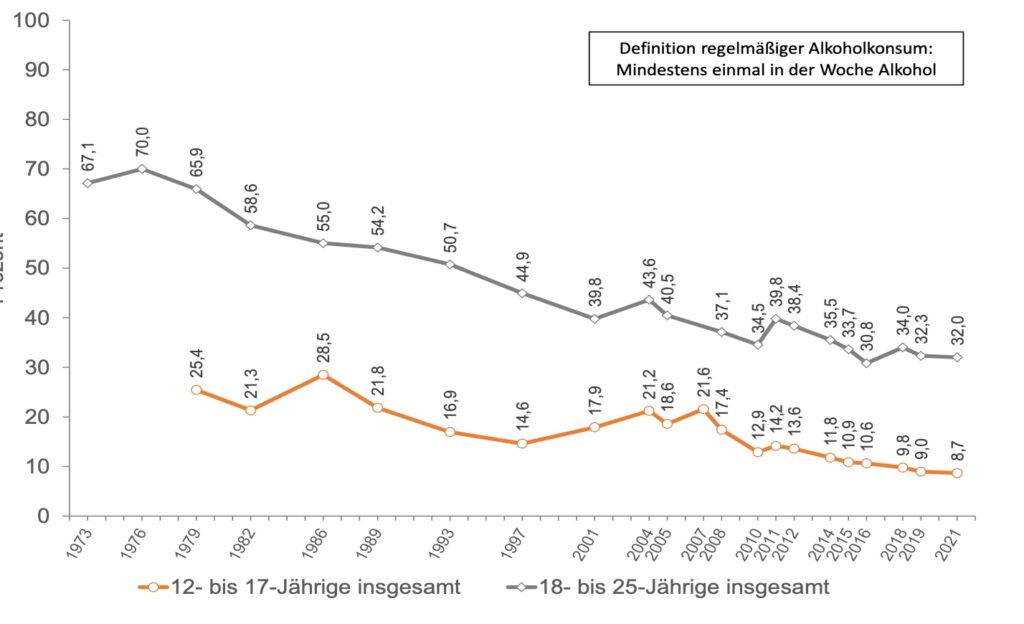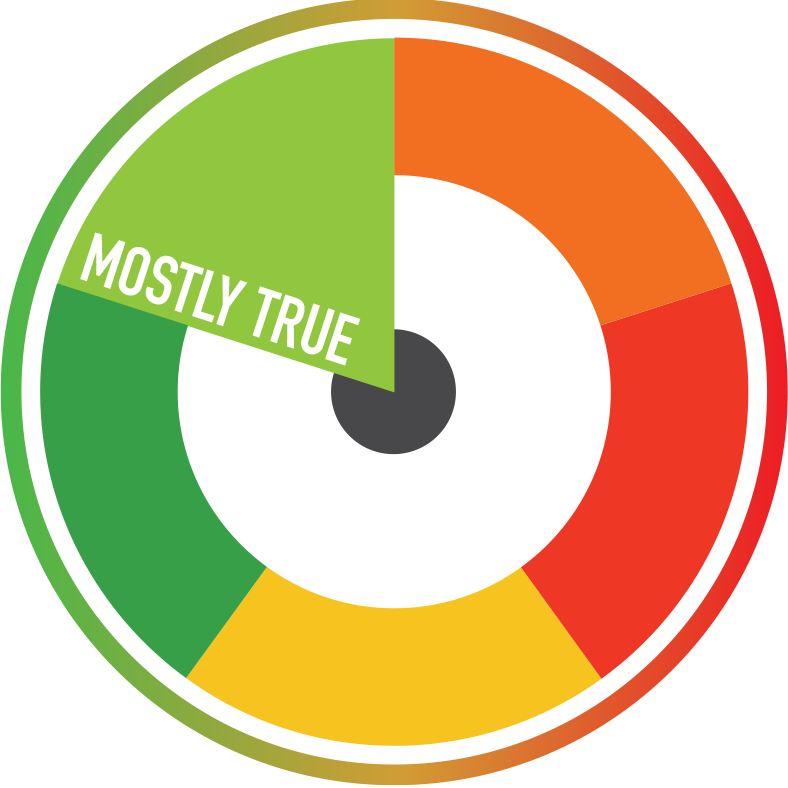On June 23rd 2022, the Tagesschau published an article on alcohol consumption by teenagers and young adults. The article is titled “Alcohol consumption among young people at an all time low” and focuses on the changing consumption behavior towards alcohol, smoking and cannabis among teenagers (12 to 17 years) and young adults (18 to 25 years). The age groups can be summarized without affecting the significance of the results. This comes out to be mostly true.

low”
The Tagesschau writes that there is a long-term downward trend. Teenagers and young adults are drinking less alcohol than in previous years.
The content of the article is based on a study conducted by the Federal Center for Health Education (BzgA) in 2022 entitled “The substance use of teenagers and young adults in Germany” and presents the results of the 2021 Alcohol Survey on alcohol, smoking, cannabis and trends. 7.002 young people between the ages of 12 and 25 were surveyed between April and June 2021. In addition to alcohol, both the Tagesschau and the BzgA address developments in smoking and the use of cannabis. However, this factcheck only takes a closer look at alcohol consumption.
The study looks in particular at regular consumption, which means drinking alcohol more than once a week. Consumption among young people aged between 12 and 17 has fallen by 2.2% since 2015 and by 1.7% among young adults aged 18 to 25. The BzgA emphasizes that the regular consumption of alcohol among adolescents and young adults in Germany has been steadily declining since the 1970s.

(BzgA study)
Unlike the BzgA study, the Tagesschau report does not explicitly limit its findings to Germany or any other specific country. This does not rule out the possibility that the statements could apply to the entire European Union. In order to verify the Tagesschau’s statement, alcohol consumption in various EU countries was examined and compared.
In Germany, there has been a clear decline. According to the Health Research Board National Drugs Library, the Swiss Health Observatory and the UK Health Security Agency, consumption in Ireland, England and Switzerland has fallen by up to 43%.
In Denmark according to an article on Deutschlandfunk radio, there has been an opposite trend with an increase in alcohol consumption. Danish teenagers (aged 15 and over) consume alcohol heavily and excessively. 82% of 15-year-olds have already consumed alcohol and 60% have been drunk. This could be related to the Danish Youth Protection Act. Drinks with a low alcohol content can be bought from the age of 16 in some cases, but there are no laws regulating consumption in public. There is merely a recommendation from the government that alcohol should only be consumed from the age of 16. This means that only the purchase is regulated by law, which could be easy for young people to circumvent. This study makes clear that the statement made by the Tagesschau cannot be applied to the entire European Union without restriction. Although a general decline can be observed in most EU countries, there are still countries that have seen an increase in alcohol consumption. This partially refutes the claimed trend.
According to Johannes Lindenmeyer, Director of the Salus Clinic in Lidow, Brandenburg (Germany), young people want to live healthy lives, which might be one of the reasons why attitudes towards alcohol have changed. The coronavirus pandemic has also influenced the drinking behavior. Young people were not allowed to go out partying or attend parties as usual. They have changed their priorities and turned to other hobbies. Social workers also confirmed the downward trend to Saarländischer Rundfunk (Germany). Alcohol is still being tried, drunk and limits are being exceeded. However, regular excesses that are repeated are no longer the trend.
Conclusion
Alcohol consumption is largely on the decline, as confirmed by the BzgA study. This trend can be clearly observed in Germany, Ireland, England and Switzerland, among others. However, teenagers and young adults are not consuming less alcohol everywhere in Europe. One example of this is Denmark, where consumption has actually increased in recent years. According to experts, the reasons for the downward trend includes the coronavirus pandemic, which has reduced the focus on partying and celebrating. The current trend towards conscious and healthy lifestyle is also influencing the drinking behavior. The Tagesschau did not specify a specific country, that’s why the above reasons and examples prove the claim “Alcohol consumption among young people at an all-time-low” to be mostly true. In principle the statement is not wrong, but does not apply to the whole of Europe.
RESEARCH | ARTICLE – Sina Eisenschmidt and Katharina Kück Jade University of Applied Sciences, Germany
Leave your comments, thoughts, and suggestions in the box below. Take note: your response is moderated.





